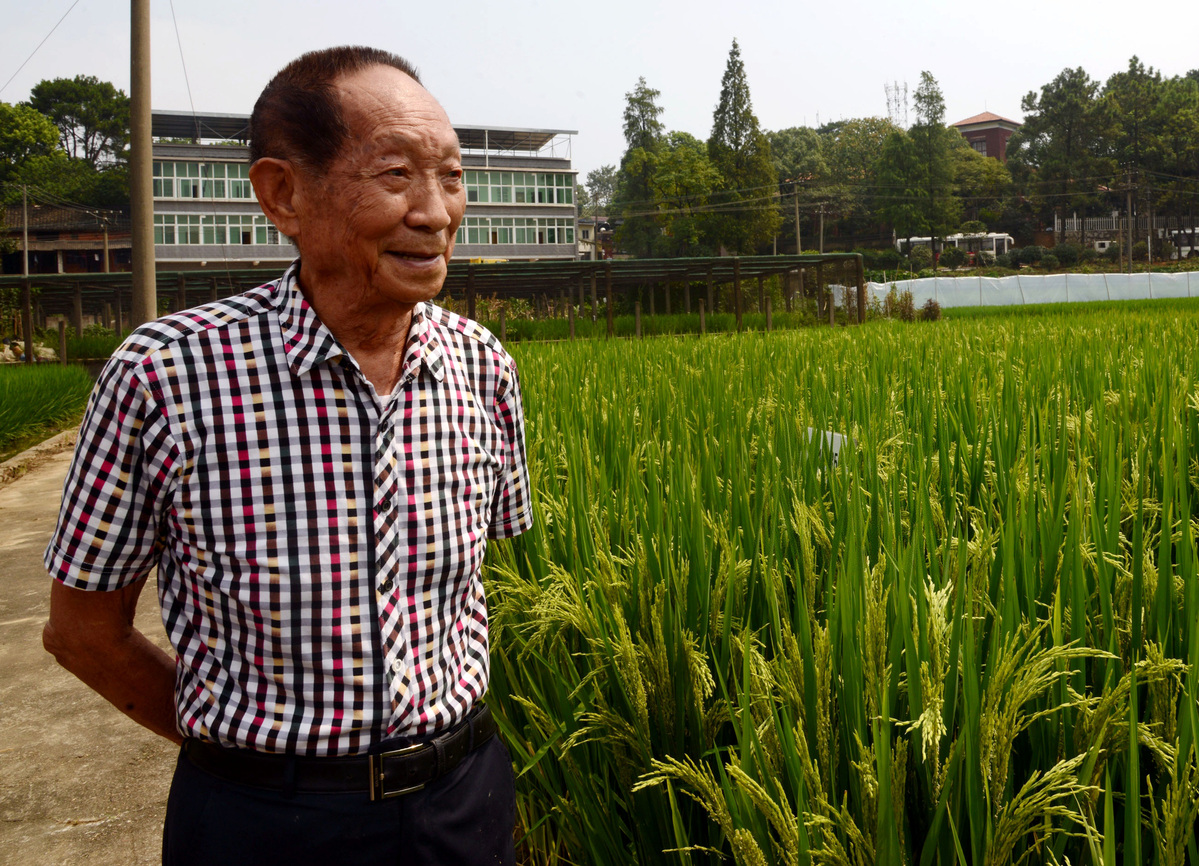Yuan Longping is dubbed the "Father of Hybrid Rice". [Photo/Xinhua] "When the provinces of Hunan and Hubei have bumper harvests, there is enough food for the whole country," a Chinese saying goes. Hunan, an inland province in central China, is a land of plenty. It is also the birthplace of some of China's greatest thinkers, scientists, military strategists and political leaders. Wei Yuan (1794-1856), born in Shaoyang, Hunan, was the first Chinese scholar in modern times to open his mind to the outside world. He compiled one of the first Chinese scholarly works on Western technological advances. In his Illustrated Treatise on Sea Powers, Wei began to look at what could be learned from Western seafaring nations. As historian Matthew Mosca argues in his book From Frontier Policy to Foreign Policy: The Question of India and the Transformation of Geopolitics in Qing China, through his innovative approach, "Wei was able to devise an overarching 'foreign policy', a program of action connecting all corners of the Qing realm (1644-1911) from the Pacific to Central Asia." His scholarly work had a profound influence on the reformers that followed him. Zeng Guofan (1811-1872), also a Hunan native, was a top military commander in the Qing Dynasty. He is known for raising and organizing the Xiang Army to assist the Qing military in suppressing the Taiping Rebellion, a revolt against the Qing. Zeng was a pioneer in foreign affairs, making the development of foreign weapons a priority. In 1861, he built an ordnance factory in Anqing, Anhui province, to pilot the production of foreign guns, cannons and ships. Chairman Mao Zedong was born in 1893 in Shaoshan, which has become one of the country's most popular tourist spots. Mao, who spent his childhood in Shaoshan, went on to join and lead the Communist Party of China, and play a central role in the founding of the People's Republic of China in 1949. After Mao died in 1976, his former residence in Shaoshan was opened to the public and became a major tourist destination. Yuan Longping, born in Qingyang in 1930, is an agriculturalist who devoted himself to agricultural education and research after graduating from college. He was the first person in the world to develop a hybrid rice strain, and his research achievements in developing higher rice yields helped provide a solution to worldwide hunger and starvation. He has received many international awards, including the Gold Medal Award for the Outstanding Inventor of the UN World Intellectual Property Organization and UNESCO's Science Prize. Yuan and his team successfully developed technologies for producing indica (long-grained non-glutinous) rice, helping China become the world's leading rice producer. For this achievement, Yuan was dubbed the "Father of Hybrid Rice". In 1979, the technique for producing hybrid rice was introduced to the United States, the first case of intellectual property rights transfer in the history of New China.
Birthplace of China's brightest and bravest
Editor:李莎宁
Source:China Daily
Updated:2019-07-30 14:59:57
Source:China Daily
Updated:2019-07-30 14:59:57
Special
Contact
Welcome to English Channel! Any suggestion, welcome.Tel:0731-82965627
lisl@rednet.cn
zhouqian@rednet.cn











